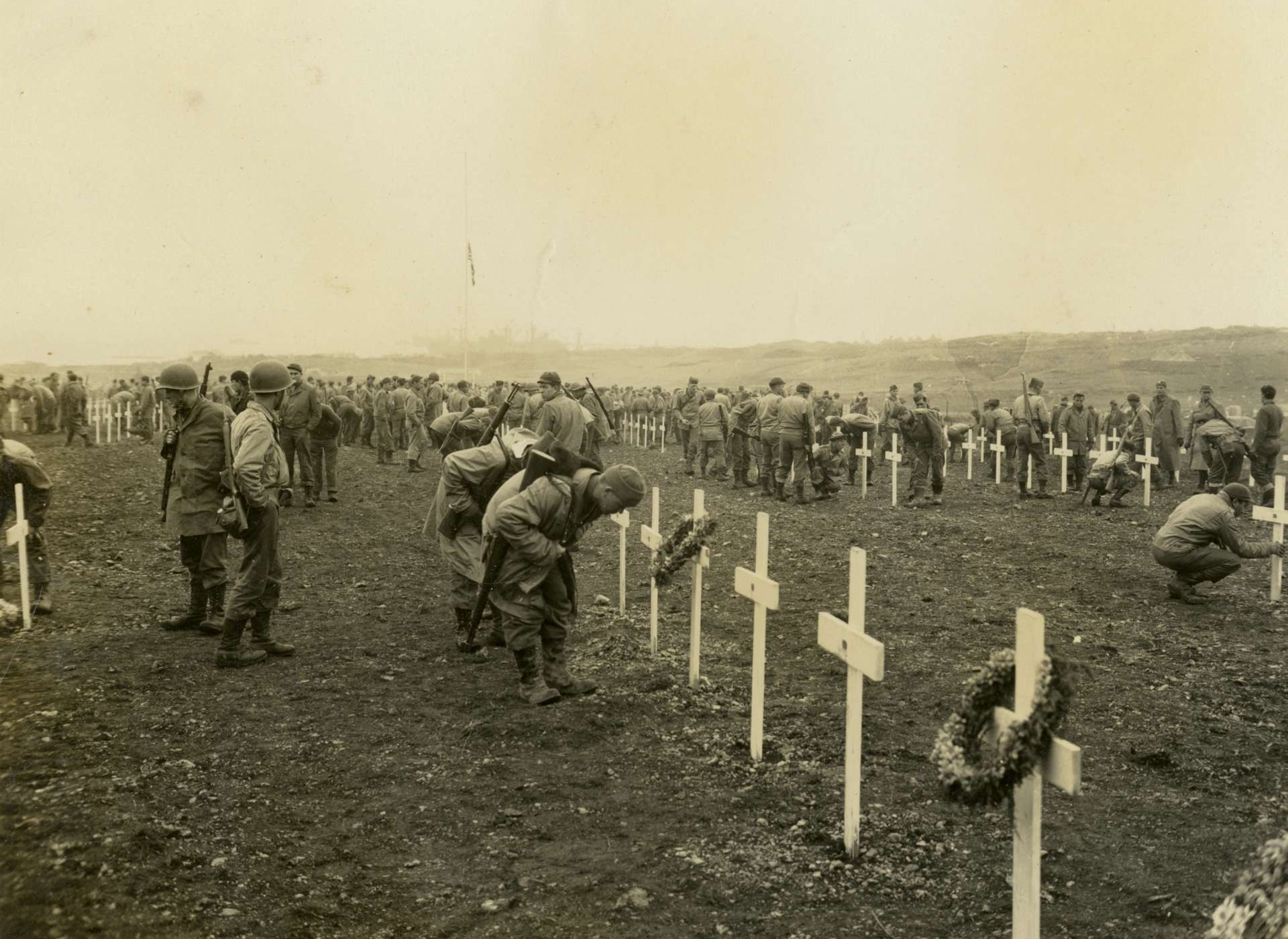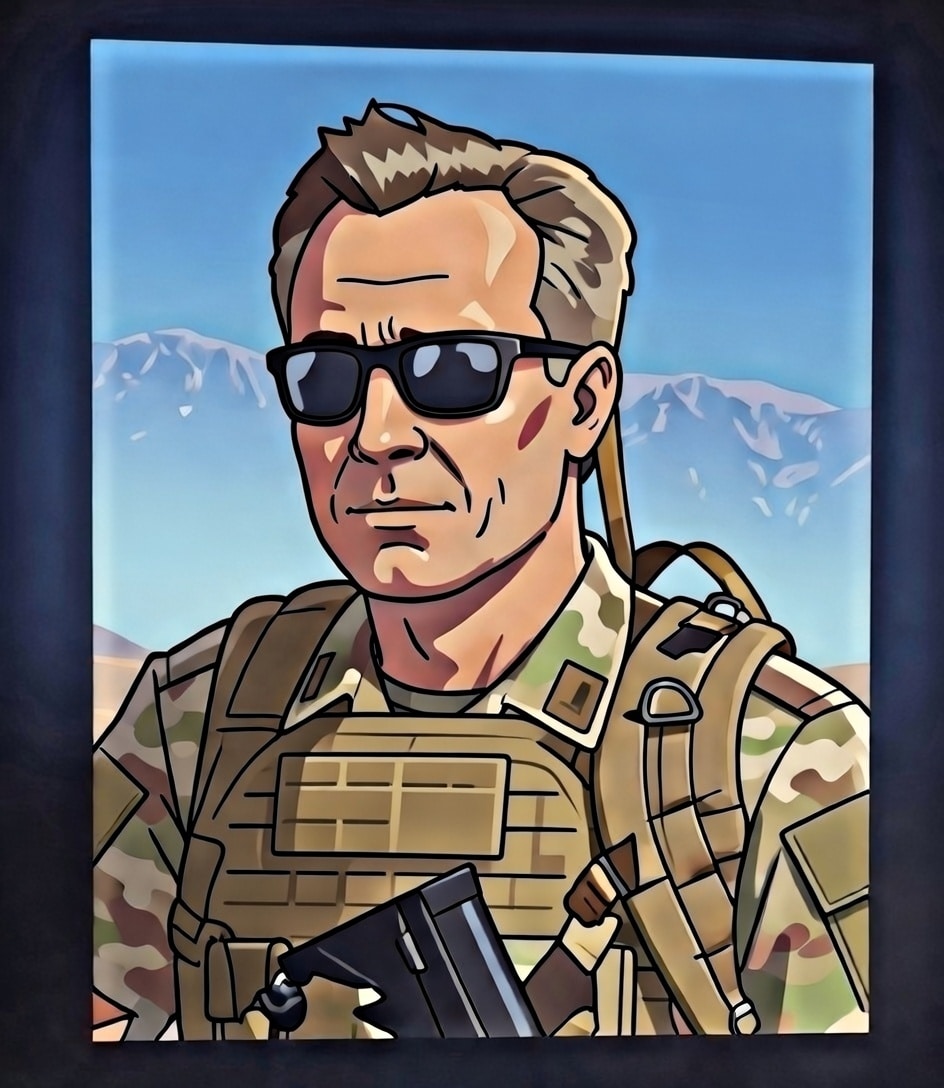
Splendid Memorial Day speech by Matthew Hoh:
The idea of my talk was originally going to be that of the unending costs of war, and I found that to be very daunting for a number of reasons.
One, I just didn’t know where to begin, what to talk about, what facet of the costs of war, the unending costs of war to emphasize, to talk about. I was terrified of the thought of leaving something out. One, because someone might be like, “Hey, Matt, you forgot that.” So that’s a hit to my ego. But more importantly, what cost of war has more importance than the other, what can have more importance than the other, what needs to be emphasized more than the other, and none of it can be.
I could have spoken about the remnants of war, the unexploded ordnance and land mines, or to the toxic legacy of war, and whether to speak to the modern or the past or the future of it. In terms of the toxic legacies of war, for example, the hundreds of thousands of Vietnamese, Laotians and Cambodians who gave birth to deformed and dying babies over the last sixty years, something that’s still happening today. Whether I should talk about those overseas or here at home poisoned by war, such as my friend, Dan, who carried a machine gun in Vietnam, came home with Agent Orange in his body and passed it on to his son. And that boy lived some short, terrible years until he died in his mom’s and dad’s arms.
We can talk about what’s currently occurring and will continue to occur to generations of Iraqi mothers, Afghan mothers, Syrian mothers… and how Ukrainian mothers 40 or 50 years from now will be giving birth to children who are so horribly deformed that we will never, ever, want to see what they look like.
We can talk about the ongoing costs in the sense of what it costs veterans, the suicides and traumatic brain injuries, and what it costs their families. We can talk about the whole issue of secondary PTSD, how children grow up in homes of war veterans, terrorized by and terrified of their fathers.
We can talk about the cost to us, as a society. 60% of the discretionary federal budget goes to war and militarism. Add the Pentagon budget to the VA budget and you get 60% of the federal budget. Throw in our wars here at home, throw in federal law enforcement, border security, and prisons, and that’s now 70% of the federal discretionary budget that goes to war and militarism, whether it’s at home or abroad.
So, of course, this is very daunting. But the reality is, that’s not what I want to talk about. That’s not what I want to speak about. There are stories I want to tell and stories I don’t want to tell. But, because today is Memorial Day, they have to be told. Because if we’re getting to this idea of why we are here, and what is it that we are trying to memorialize…and we’re all trying to avoid the cheapness of [Memorial Day], the political expediency of it, the way it is used by our empire, by our politicians, by our military-industrial complex, by the banks and by the fossil fuel corporations, to continue war and militarism…but aside from that, there are some very real stories that we can never, ever forget. And these are the stories that are not told on Memorial Day.
I take exception to what was said in the Hillsborough proclamation* about how those who went over there went and expressed the best ideals of this nation. And these two stories I will tell, which I warn you are difficult, are not, by any means, anyone’s best ideals.
Both these stories come from my time in Iraq as a Marine Corps officer.
The first story is about a Marine I was with named Joseph, who had his head taken off by a suicide bomber on a day that, for the grace of God, none of my Marines were injured or killed. When the casualty officers in the US came to his home and told his wife she ran to the kitchen and tried to slit her wrists open. That’s a story we don’t hear very often on Memorial Day.
Where are the best ideals of our country located in that? A good man was killed by an enemy we created in a country we invaded based on lies, and his family was ruined for that. That is the cost we must speak of.
These costs, these unending costs…I’ve seen this over and over again, and I will see this again. I know, and I’m certain of it.
I find it different among men, women and children. It’s a pain; it’s a pain that traps and tortures them forever. But it’s different. In the men, the fathers, the brothers, the husbands, it’s a pain as if something had been stolen from them. There’s a taking that goes on in all this loss. But in the men, it’s as if something has been taken from them without their ability to do anything. So it’s a pain that exists in a deadness in their eyes and a deadness in the soul and a numbness that often turns into self-medication, anger, rage, despondency, isolation…
Among the women, it’s a pain that I hope to God I never see again. But I know I will. Among the wives and mothers and sisters is a terrible, terrible, excruciating pain that when I come back to those words of how that pain tortures and traps them…it is something that they live with forever because it’s a loss where something is ripped out of them, ripped from them, and they spend their lives feeling that piece of them being torn from them, never ever getting it back.
The children may be the saddest because among the children, they grow up, and I’ll speak from my experience of their fathers because I did not serve with women who were killed, but I served with men who were killed. Their fathers are not there, and it becomes normalized. That might be the most horrible aspect of it all: these children who grew up with a normalized notion that their fathers were killed in wars overseas for no purpose and that this is their life, without their fathers, and it’s just become acceptable to them.
The other story is what we did there, and it also touches on pain. In Anbar in ’06 it was difficult, it was bad, very violent. We’d leave our bases to go out, and we’d get into a firefight or an IED attack, or someone would shoot an RPG at us, and the rockets and mortars were fired on us constantly. Most of us were okay because we had our body armor and our vehicle armor, and we were protected in a way that no previous generation of warriors had ever been protected. Certainly, the civilian population did not have that level of protection. So anything that happened to us was magnified by a factor of 100 to the civilians, let alone the insurgency, the resistance we fought.
But it was bad, and we decided as a command unit, and I raised my hand to this, and it’s something I will live with forever…that the young men who were fighting us, who I had realized were no different than the young men who I had in my command. Of the 153 Marines and Sailors that were with me in Iraq in Anbar Province that year, if they had been young Iraqi men, well, 51 of them would have been fighting us, 51 of them would have been in Abu Ghraib, and 51 of them would have been dead. They were no different than my boys.
So these boys that we killed on the streets, who were fighting us because we were foreign invaders, they weren’t al Qaeda, they didn’t believe in those jihadist notions, they didn’t believe that somehow there would be 70 Virgins waiting for them. They weren’t dead-enders for Saddam Hussein. They were boys who were fighting us because their country had been invaded.
When we killed them, we decided, again as a command group, that we would let the dogs eat them on the street rather than allow their families to take their bodies. In Iraq today, there is a mother whose memories of her son are of a dog eating him in the streets of the hometown he was defending from foreign invaders, and it was upon my hand, my decision, along with others, to allow that to happen. I don’t know where, in anyone’s ideals, that is the best stuff, but it is the reality of the American Empire, it is the reality of the American military, and it is the reality of our wars.
This idea of what are we trying to memorialize? What are we trying to get to? One of the things that I could have spoken about in terms of the costs of war is the cost to our society, the cost to our identity, the cost to our history, to our narrative, who we are; this idea that was so romanticized, so valorized, and these notions that extend whether they’re political, whether through Hollywood, whether through the history books provided in our classrooms, the storytelling, the narrative… it’s mythmaking. It’s mythmaking. And that’s what we advance further wars upon. There’s a perpetuity that goes along with this. Memorial Day, in the way it is celebrated in most of the United States, is no different. We heard it in that Hillsborough proclamation: the best ideals…
For me, the costs are, well, bodily; if it were not for the barbiturates that I’m prescribed, I wouldn’t be standing in front of you right now. Right? If I didn’t take a barbiturate a couple hours ago, I wouldn’t be up on my feet. That’s the bodily cost for the traumatic brain injury I carry.
The far more important costs of the war, and I say this to share what millions go through whether they’re from the Second World War, the Korean War, from the Vietnam War, from Iraq, Afghanistan, what have you, are the psychological and spiritual costs. At best, I can summarize it like this as I stand here: I am confronted with the reality that the morality I live with, the reality of the morality I live by, is a morality that is constructed upon foundations of anger and guilt with an incessant and eternal need for redemption and atonement, as opposed to a morality that may have been constructed upon compassion and love, or mercy and justice.
You know, as a boy, I was told a man once advised that those who live by the sword shall die by the sword…so, so be it.
It’s this idea of what we’re trying to memorialize that I keep coming back to today. What are we trying to do? We can’t just banish this day. We can’t just abolish Memorial Day because it has been utilized to further war, to further militarism. We can’t just abolish Memorial Day because of the use of it to romanticize warfare, to valorize it.
You know, my great uncle Gabby, he was one of the first people drafted in 1940. He served all those years, and in 1944, he went ashore at Normandy on the second day, not the first, but he was wounded not even two weeks later, advancing towards Calais. Oh, what a great story; this is a man who fought the Nazis…most of the reality, however, is that he lived his life with shrapnel all through his body and the pain of that conflict. He told us how just like in the movie Saving Private Ryan…sometimes these films, Private Ryan being one of the worst of many films that glorify war and sanctify it, romanticize it, make us want to believe that war can be somehow good when it can never be, it can’t be anything other…when Uncle Gabby went ashore, the water there in Normandy, on the second day, was red from the blood of the first. How can you ever walk through that and then ever be normal again?
When you come home and you’re told you’re a hero, when the reality is you took part in organized murder…you come home, and you go to baseball games, you go to hockey games, and they ask you to stand up, and they all cheer for you, and you’re thinking in your head: all I did was take part in organized murder. Some lady or some man in the store says, “Oh, you’re a veteran, thank you for your service,” and your thoughts to yourself are: I let some dog eat some mother’s son.
So, as we sit here today, I think of this idea of what we’re trying to do on this day, Memorial Day, because it is an important day. If we do not fight on this day, if we do not push back, if we do not speak truth on this day, then this day will only be utilized to further glorify, further romanticize and further the mythology of good wars. That is a cost too great.
Thank you.
https://matthewhoh.substack.com/p/a-morality-of-anger-and-guilt
Email me at cgpodcast@pm.me.































